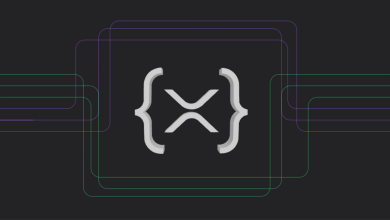Japanese AI Giant Unveils $350M Bitcoin Strategy via Hong Kong Unit

Japanese AI firm Quantum Solutions has published an ambitious Bitcoin treasury strategy, a development that marks a significant milestone for corporate Japan’s adoption of cryptocurrency. New Hong Kong subsidiary GPT Pals Studio will aim to amass a 3,000 BTC war chest worth over $350 million within the next 12 months.
Quantum Solutions is funding the treasury with an initial $10 million injection from Integrated Asset Management.
The company said it considers Bitcoin a “long‑term, strategic reserve instrument” and will make the target acquisition in tranches, adjusting to market sentiment, availability of capital, and changing regulations.
The market value of the company is now around ¥23.25 billion (just short of $159 million), and its shares dropped 9.19% to 504 yen ($3.44) after the announcement.
GPT Pals Studio has already started establishing a secure bitcoin infrastructure, which includes segregated cold and hot wallets, internal controls, as well as audit capabilities. To ensure disciplined investment, the company’s board and audit committee will oversee this.
CEO Francis Zhou stated that the company is “best positioned to create a Bitcoin-first capital structure” and wishes to invest with “institutional-grade discipline.” He further mentioned that discussions are underway with asset managers, sovereign wealth funds, and fintech companies to finance the treasury roadmap.
Quantum is one of several Japanese companies that have added BTC to their balance sheet. Kitabo, for example, has set aside ¥800 million ($5.6 million) for BTC, and Tokyo power firm Remixpoint just upsized ¥31.5 billion ($215 million) in a bid to boost its Bitcoin reserves.
The steps were preceded by an earlier attempt at Metaplanet, the first Japanese-listed business to adopt a Bitcoin treasury policy.
While Metaplanet led the way, Kitabo and Remixpoint’s recent steps and now Quantum are all part of a much broader trend in Japan’s company finance policy. Their move tracks global patterns of public firms holding Bitcoin as a hedge against inflation or tying up value.
Quantum’s tie-up with Integrated Asset Management, the acquirer of Forbes-highlights growing institutional confidence in Bitcoin as a profit pool for treasuries.
In its case, with its strategy directed through a Hong Kong subsidiary, Quantum seeks to take advantage of the region’s regulatory transparency and financial infrastructure. Quantum hopes to comply with Tokyo Stock Exchange reporting requirements and make disclosures regarding the performance of the reserve in due course.
Overall, Quantum Solutions’ move into Bitcoin treasuries is a sign of a more general Japanese public company take-up of digital assets. As more companies experiment with structured BTC holdings, investors and regulators alike will be carefully monitoring how the strategies develop and whether they provide long-term financial stability.




